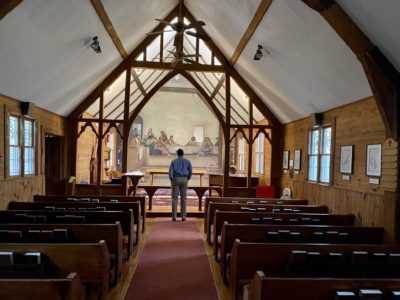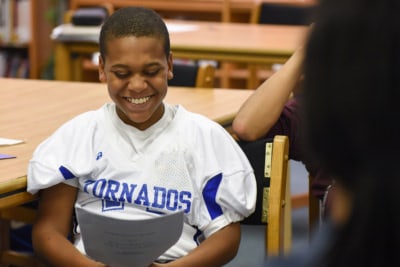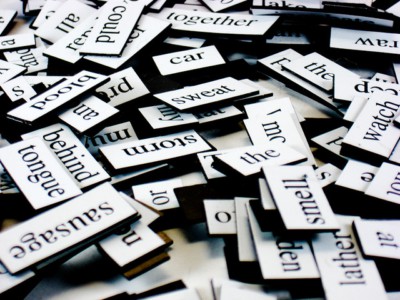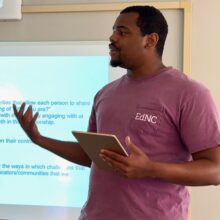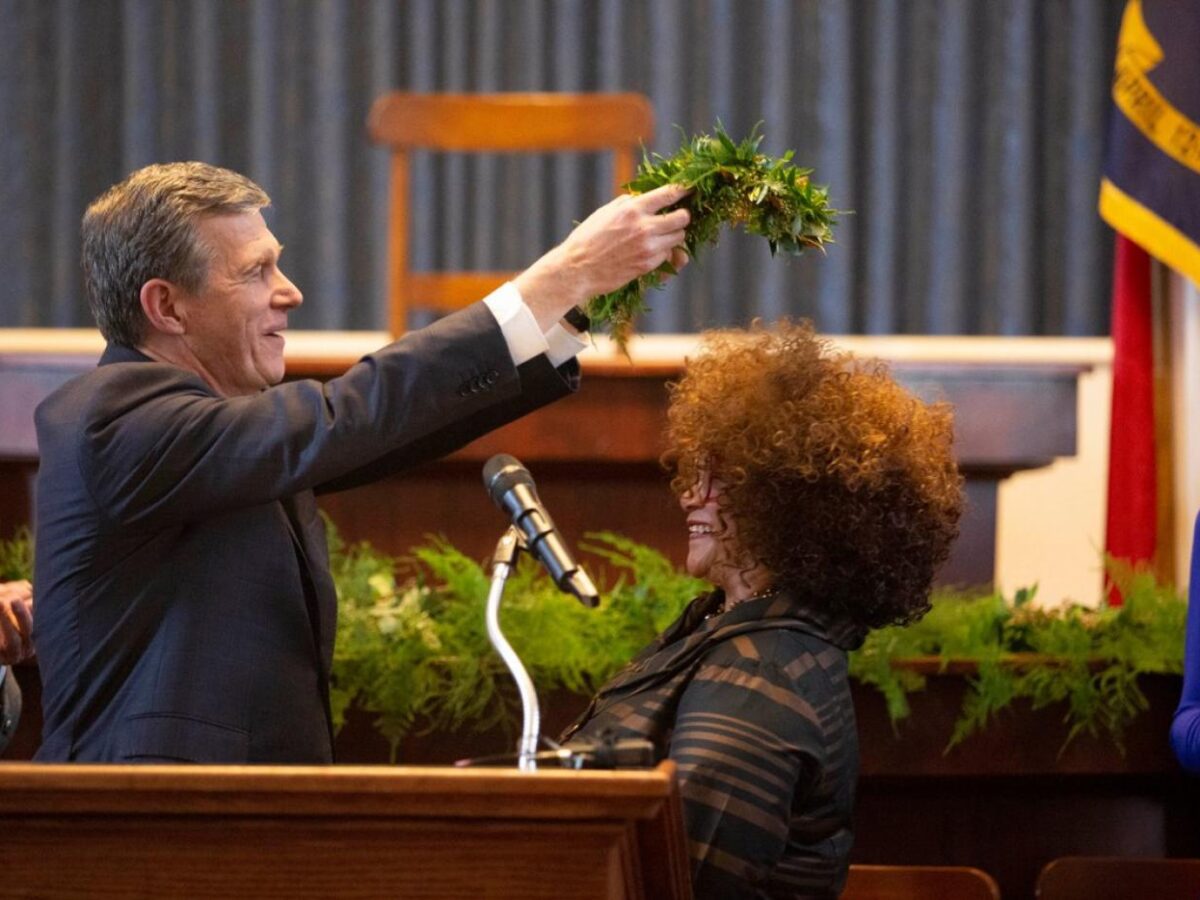
|
|
According to the Library of Congress, the national level poet laureate, officially referred to as “Poet Laureate Consultant in Poetry,” was established in 1985, the latest appointment being Ada Limón in 2022.
Before that, a similar “Consultant of Poetry” position existed, originating via an endowment from philanthropist Archer Huntington in 1936. It’s stated that Huntington started the position with intent of “raising the national consciousness to a greater appreciation of the reading and writing of poetry.”
Meanwhile, the majority of states have their own representatives. In North Carolina, Jaki Shelton-Green became the first African American and third woman to assume the role when appointed by Gov. Roy Cooper in 2018. Furthermore, many cities, counties, and regions designate a local poet laureate as well.
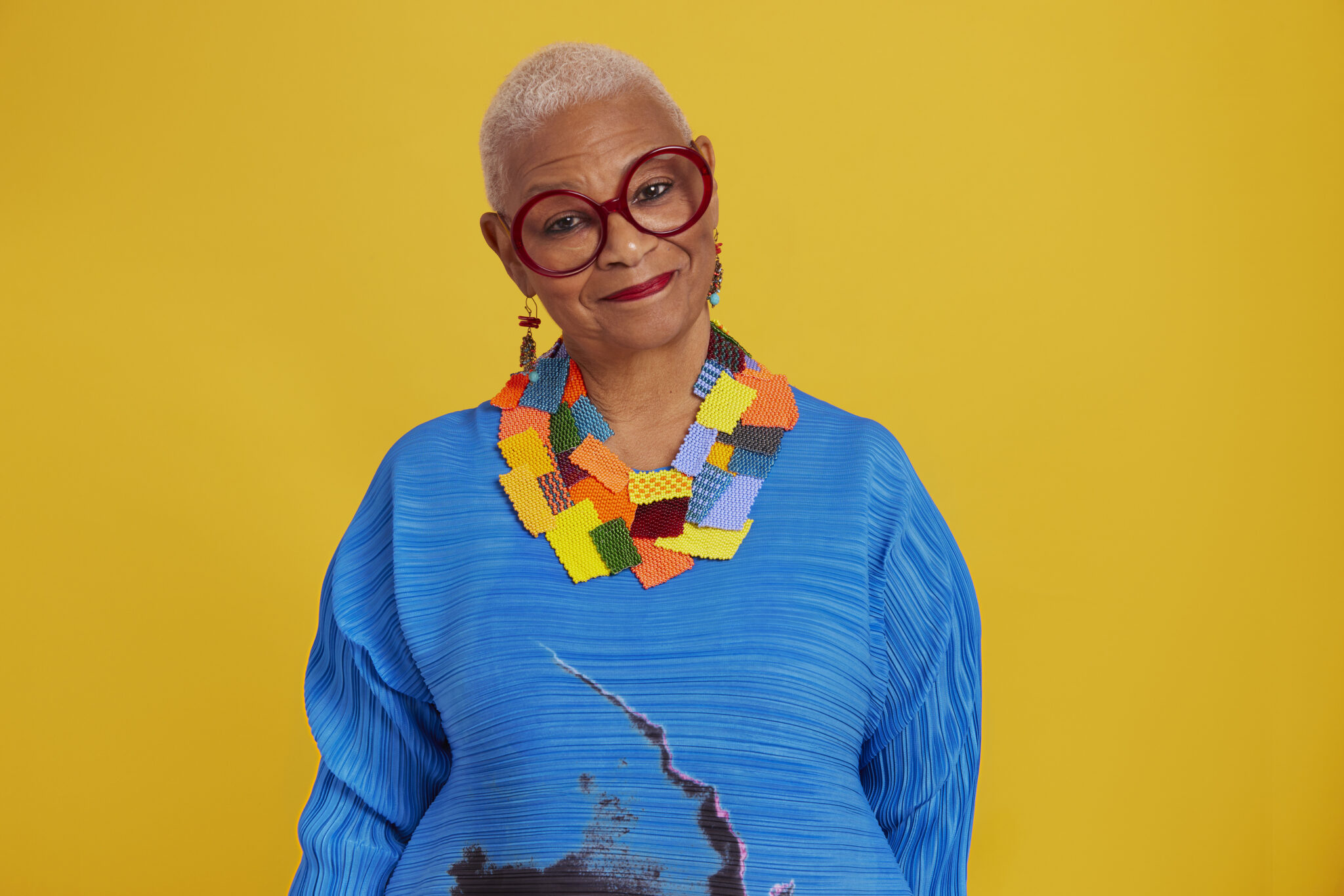
Poet laureates are thought of as “ambassadors” of the art form. While the responsibilities may differ for each, tasks often include conducting lectures, facilitating workshops, and curating experiences centered on arts and literacy. Their work can extend from K-12 and higher education, to outside of academic settings within their respective communities.
Featured in this article are perspectives from several poet laureates in North Carolina regarding the impact of poetry and storytelling:
- Jaki Shelton-Green, State of North Carolina
- Clevette “Chyna” Roberts, Kinston
- Cortland Gilliam, Chapel Hill
- Dasan Ahanu, Piedmont
- D.J. Rogers, Durham
- Jay Ward, Charlotte
Importantly, their backgrounds within storytelling are versatile, including spoken word, slam poetry, Hip Hop, documentary poetry, and beyond. Nonetheless, the experiences of N.C. poet laureates help inform the influence that storytelling has on history, education, advocacy and culture.
Storytellers’ responsibility of preserving history
Jaki Shelton-Green believes that “a people without culture, without a story, are lost.” Oral stories predate written text and were used to pass folklore, tradition, and keys for survival from one generation to the next. Thus, storytelling has been crucial in preserving history and legacy.
Shelton-Green shared that she learned the power of story at a very young age. Growing up in the rural south during the 50s, 60s, and 70s, she recalls being surrounded by stories in church service, with family at the dinner table, or on strolls through the neighborhood with her grandmother, talking with neighbors sitting on their porch. Describing these moments as a type of commerce, Shelton-Green feels it a representative of the wealth possessed within her people.
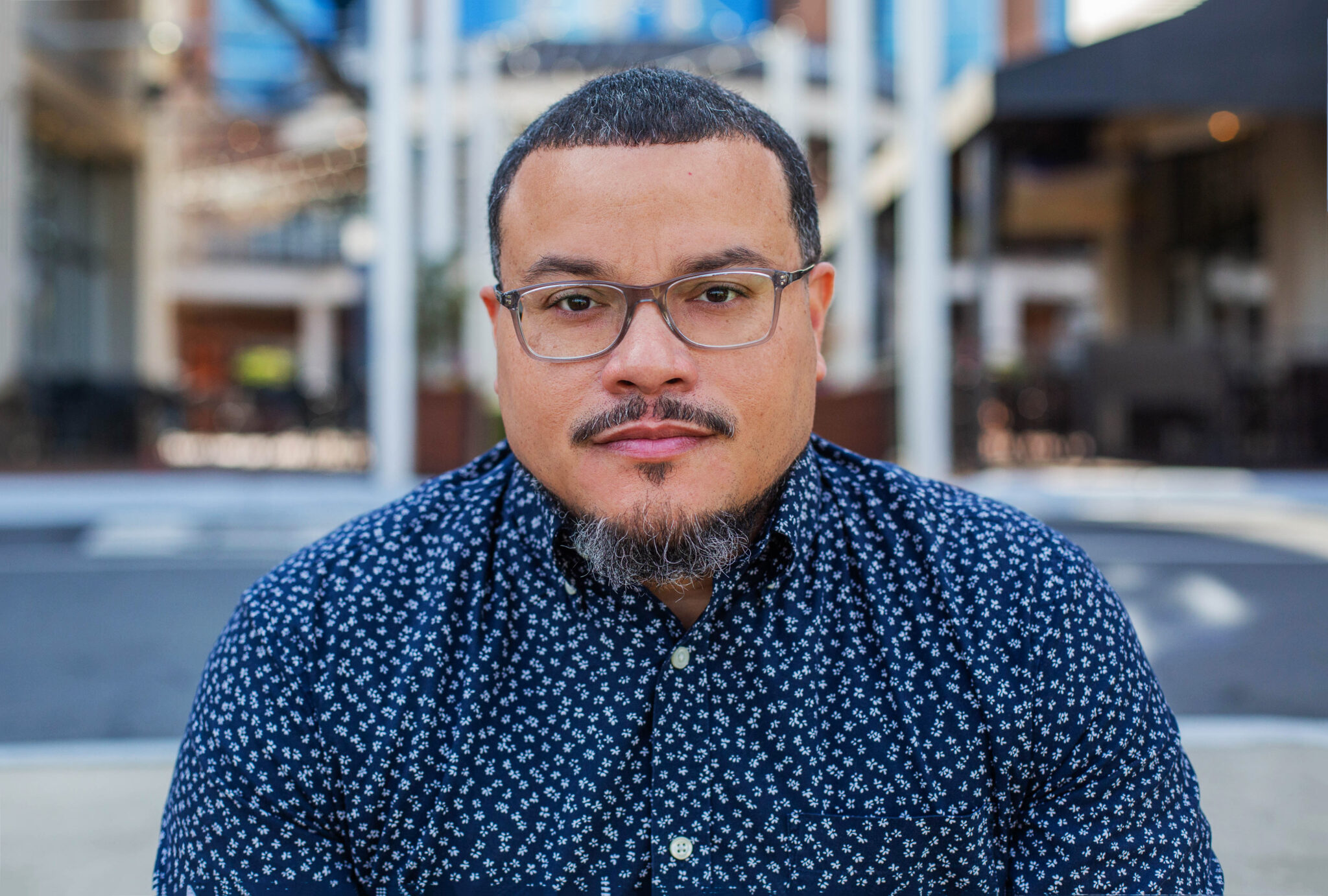
In like manner, Jay Ward looks to the West African griots as exemplars of cataloging history in effort to allow communities to remain in touch with their ancestry. Moreover, he points to the usage of rhyme, metaphor, and other figurative devices that not only create entertainment, but also support with remembering story, thus not forgetting the history.
According to Ward, art is “a mirror of where you are and how you got there. It’s also a mirror of where you’re heading,” thus reaffirming the significance that storytellers had and will continue to have in society.
Role of storytellers in community and activism
Through the lenses of these poet laureates, the responsibilities of poets and storytellers exceed entertainment or being keepers of information. Rather, each has been called upon to utilize their messaging to build community.
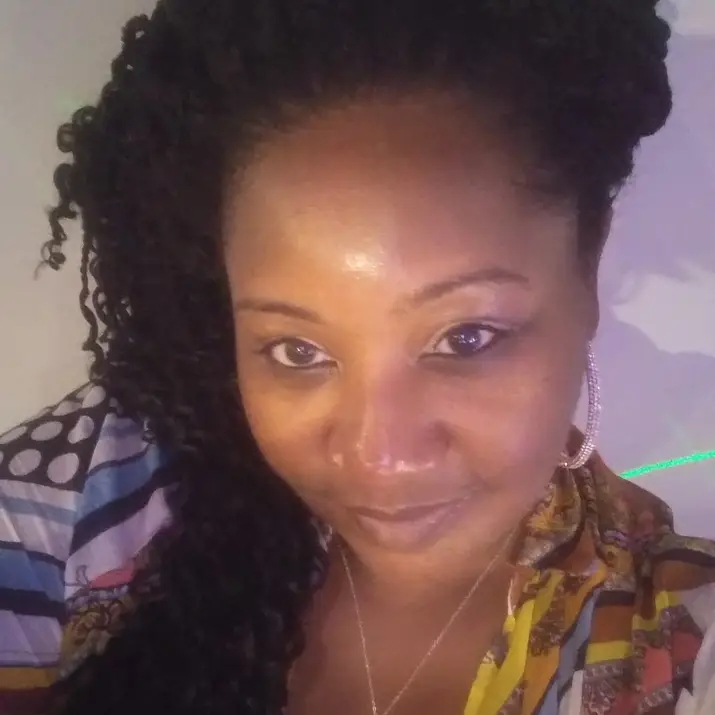
Chyna shared that she has used her poetry to address a multitude of topics, including supporting military wives, workshops for children who are victims of abuse, or shedding light on beauty in the midst of the chaos during Covid. In another example, she elaborated on leading with others in an initiative to address the violence that surged through Kinston in 2016.
Their actions mirrored that of KRS One’s “Stop the Violence Movement,” which called upon rap artists MC Lyte, Kool Moe Dee, Heavy D, Public Enemy, and many others to collaborate on a song titled “Self-Destruction.” In the same fashion, Chyna called upon poets and artists to offer a rendition of “Self-Destruction” and other poems before their community to speak against the violence.
Similarly, Cortland Gilliam provided accounts of activism through poetry. Even prior to becoming poet laureate, as a PhD student at UNC Chapel Hill, Gilliam was engaged with the anti-racism organizing on the campus. In particular, while marching in protest against the confederate statue “Silent Sam,” Gilliam’s contributions included presenting speeches before the college’s Board of Trustees and reading poems during the rallies.
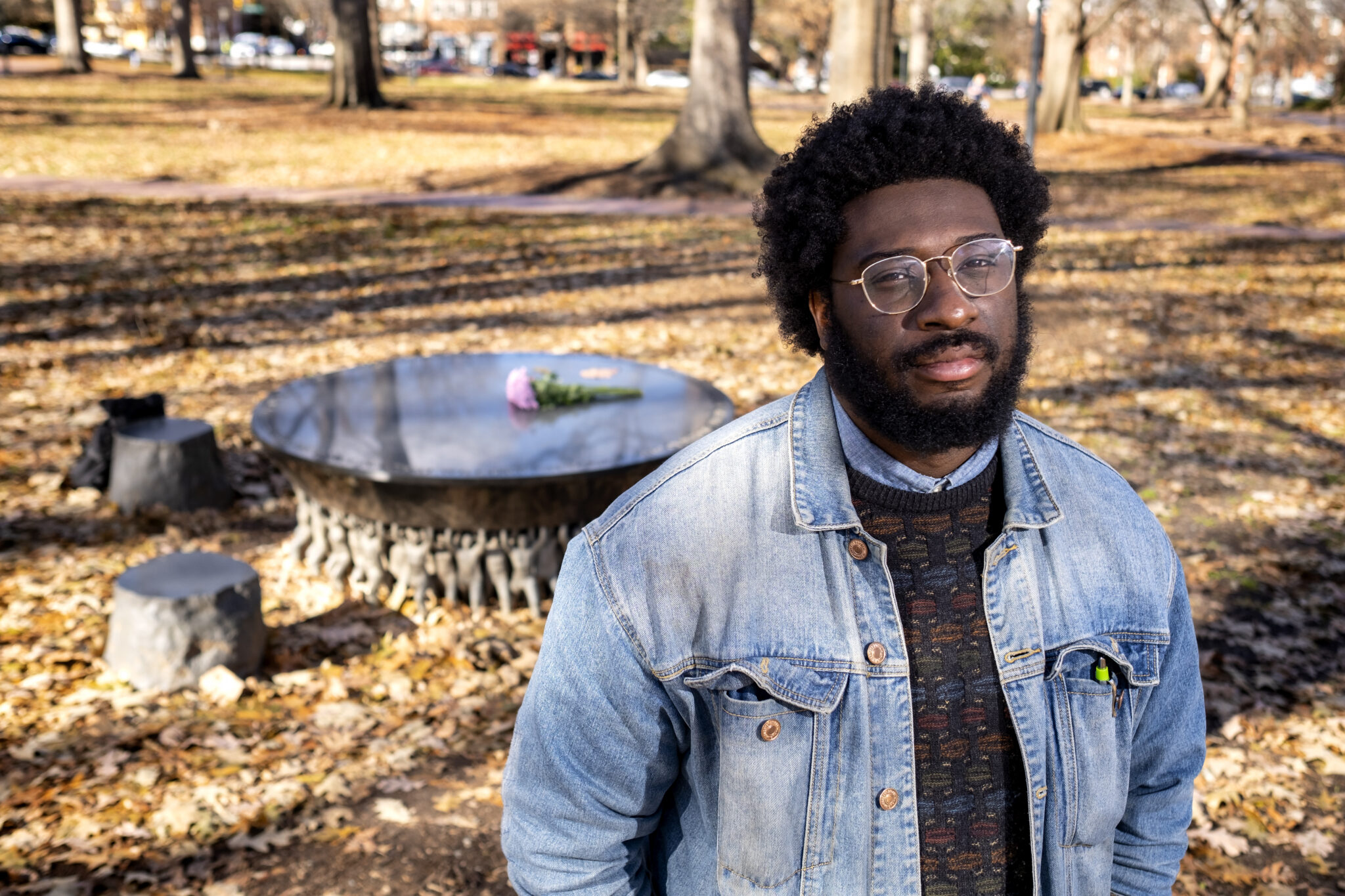
When speaking of the significance of storytelling in that moment, Gilliam references Nina Simone’s remarks on “art reflecting the time.” He goes on to state that poetry has the “opportunity to be used to push social political change and movements.” This sentiment flourished further through Gilliam’s partnership with his “brother in arms,” Jerry Wilson. Together, they would go on to curate a collaborative art exhibition for Black student artists titled, “Black Out Loud.” The exhibit featured multimedia art centered on representations of blackness within a historically white institution in the American South.
Stories of impact continue beyond the aforementioned examples. In all, each artist presents their own testaments of the vital role that storytelling not only can, but must, play in community building and advocacy.
Misconceptions of the craft
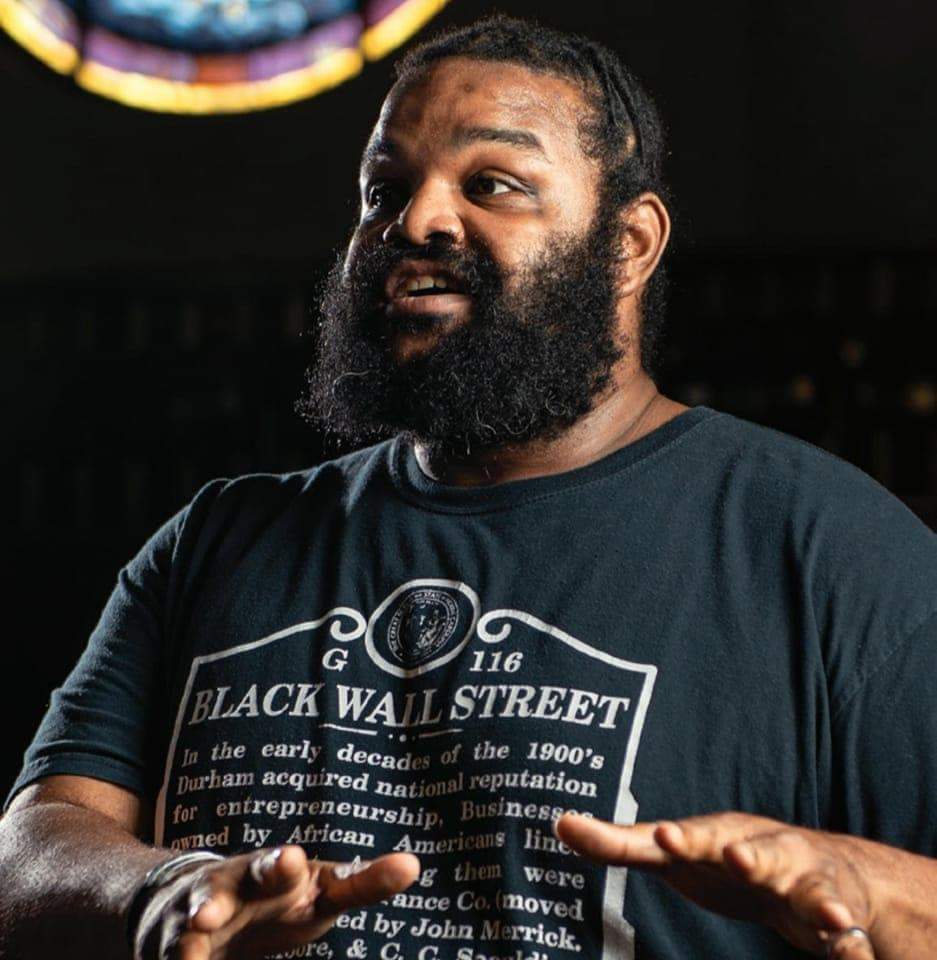
“I can never do that” is a phrase that D.J. Rogers states that he has heard countless times from friends and other spectators of his poetry performances. In response, Rogers asserts that “anybody can write a poem or tell a story.” He expressed that mathematicians and scientists are storytellers as well.
Just as math continues to evolve or scientists are consistently making new discoveries each day, poetry, too, experiences iterations and showcases diversity. Rogers believes the biggest misconception is that only “a certain person is or becomes a storyteller,” rather than acknowledging that “we are all storytellers. What we really need to figure out is what our particular medium is.”
According to Dasan Ahanu, “the art is going to ask for everything.” He makes this statement to reflect the beauty of people opening up and “vomiting” all they have to give into their poetry. In his experience, most people first encounter poetry as a means of processing their experiences “as catharsis.” As a result, this establishes poetry as a powerful tool for creating connection.
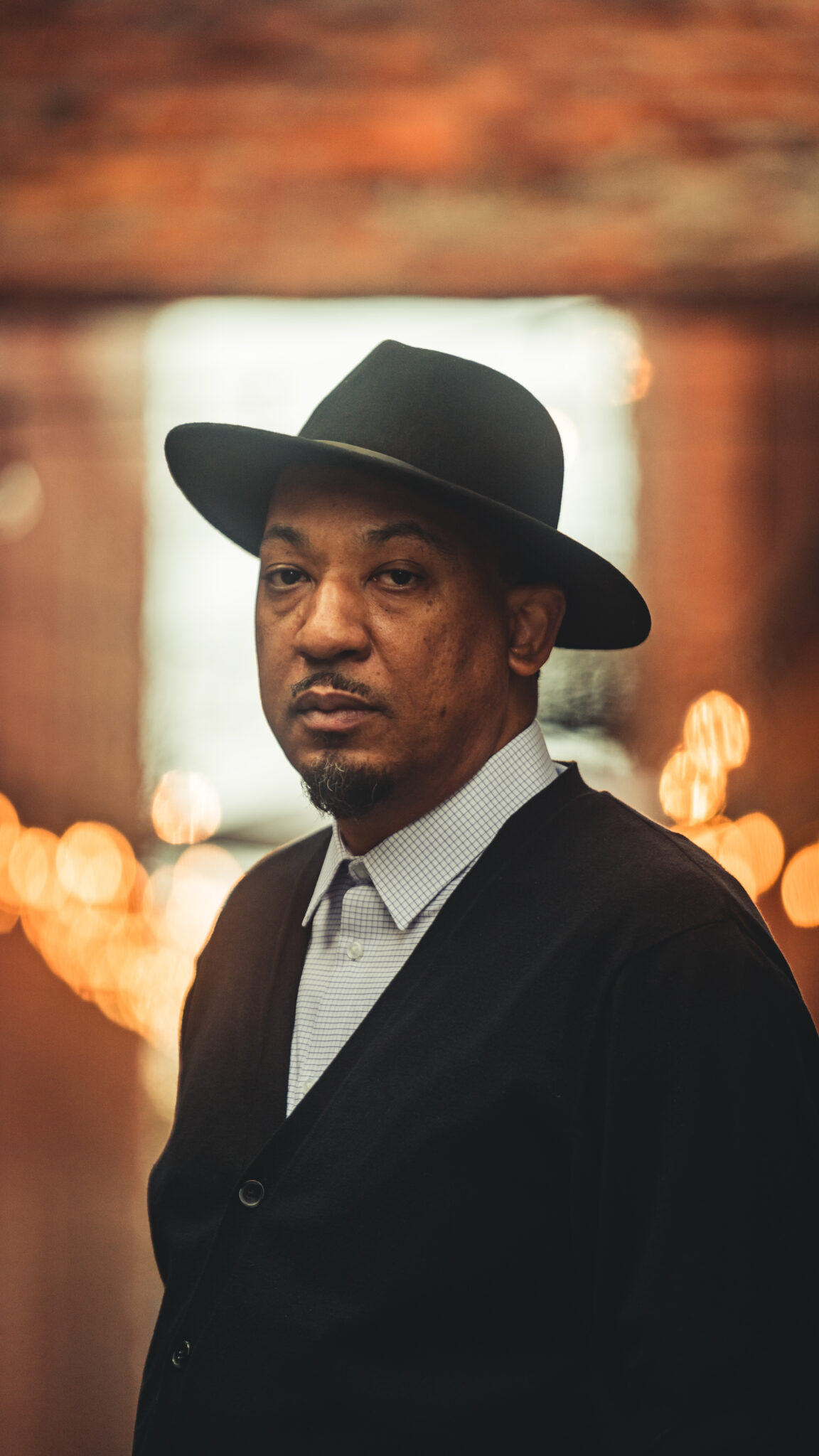
While seeking for the benefits and community to continue to expand, Ahanu hopes others recognize that, especially for those who pursue it professionally, “this is a craft that we do” and that “it takes work.” In agreement that “everybody can write a poem,” adding that he’s able to teach others how to, Ahanu challenges artists to keep pressing beyond what they’ve learned previously. “I want more people to recognize there’s a process to it.”
Celebrating storytelling
With respect to the substance that poets embed into their artistry, one important consideration is how they are celebrated within our society. Notably, April was National Poetry Month. In 1996, the Academy for American Poets established the occasion, leading to communities across the world hosting events and activities to recognize the literary genre.
Within and beyond the month of April, there are an abundance of opportunities to engage with poets. Attending open mics or poetry readings is one way to witness work from artists at various levels. As previously mentioned, many poets facilitate workshops, teaching various aspects of the craft to all who desire to continue to grow as an artist. Additionally, poetry slams immerse audiences in the world of competitive spoken word. Some slams, like the Southern Fried Poetry, Women of the World, or Blackberry Peach, enable individuals or teams to compete from across the nation. Overall, the range of possibilities for events extends far and wide, even within North Carolina.
Beyond events, Jay Ward offered insight into what it means to celebrate storytellers directly and intimately. For Ward, celebrating somebody’s work can consist of:
- Working to understand the meaning behind a text
- Inquiring “why did this person write this particular poem?”
- Letting an artist know when you feel moved by their work
In all, to reaffirm the impact of storytellers’ role in culture, consumers are encouraged to journey beyond the surface to embrace the depths of a poet’s words.
To the next generation of storytellers
Envisioning the future of storytelling, Jaki Shelton-Green dreams of a world with poets-in-residence in every school in America. She imagines “a poet who is the fabric of the community of the school.” In this world, students would comprehend the value of storytelling in finding commonalities.
Thus, one message that she has for students, poets, and other storytellers is to continue telling more stories. “The more we tell each other our stories, the more we find ourselves inside of each other’s stories,” she said.
The following are additional messages that shared directly to the next generation of storytellers:
“Right now, to interview the elders that are living, that are still here. [To younger people] What are your stories? What stories are you celebrating? What stories are you intentional about keeping for your grandchildren? What do you want the story to be about you? […] What are the stories that we’ve been told about ourselves that we need to reimagine, to rewrite, to repurpose?
Jaki Shelton-Green
“Take it further. […] There’s the message and the message evolves as time evolves and as the need of the message evolves, but craft also evolves […] take the art further, do new things, find new mediums to push it. I think that each successive generation should do that.”
Jay Ward
“I will say to be the best you you know how to be […] If nobody believes you, you believe in you. And just know that somebody like me believes in you too.”
Chyna
“Possibilities, possibilities, possibilities. Push and dream. It won’t be a thing until somebody makes it a thing. […] The thing about a dream is that it’s not an aspiration, it’s a destination. So what’s going to happen is, even if you never get there, by having and pushing towards it, what you’re going to uncover is going to be the true value because you’re moving towards a possibility, just because you believe as possible. What you’re going to be able to accomplish along the way may ultimately give you another dream, but it’s also going to give you another reality.”
Dasan Ahanu
“Your voice is needed. Not just needed by the people around you, the adults in your life, the spaces of your young world; it’s also needed by you. […] We all have something to say and I think we need to say more of it.”
Cortland Gilliam
“Don’t stop telling stories. No matter who tries to impede you, no matter what anybody else says, your story matters. Nobody can tell that story but you. Anyone who tries is going to get details wrong. […] When we leave room for interpretation because we have not told our own stories, we leave space for assumptions to be made about us, about what we thought, about what we wanted, and that can be very destructive. It is our job as storytellers and as members of a culture and a society to construct and not destruct using our ability to tell those stories.”
D.J. Rogers
Recommended reading
